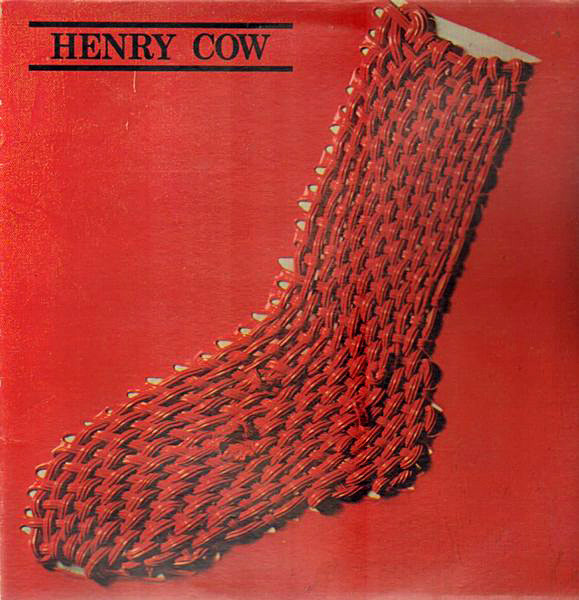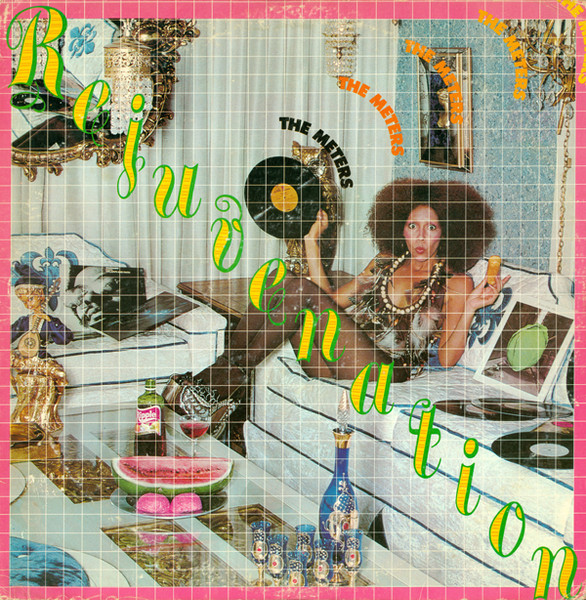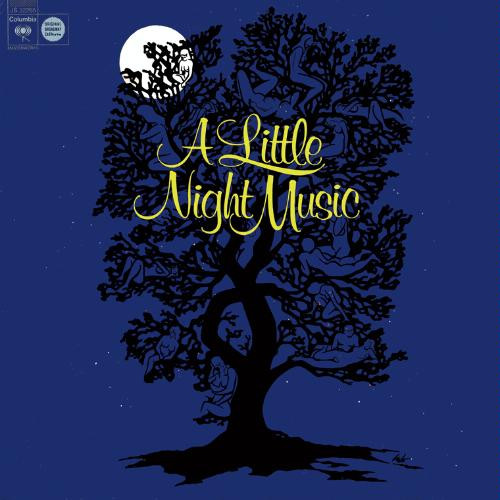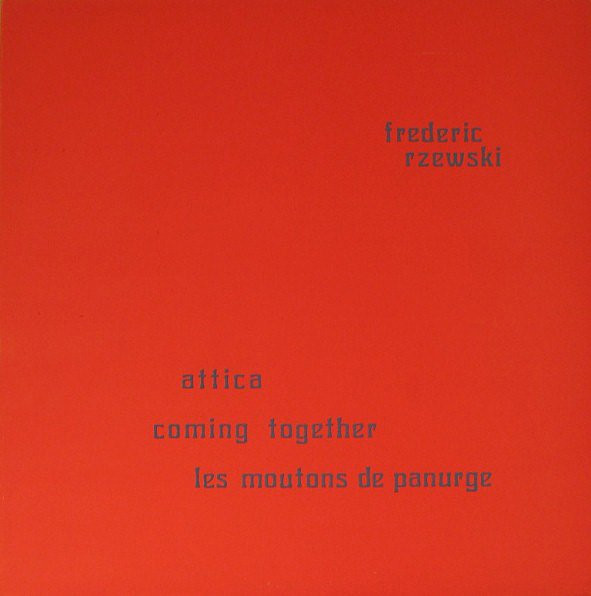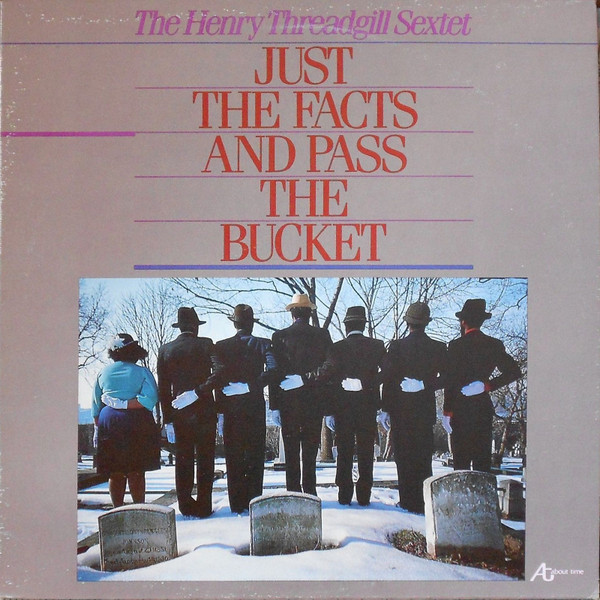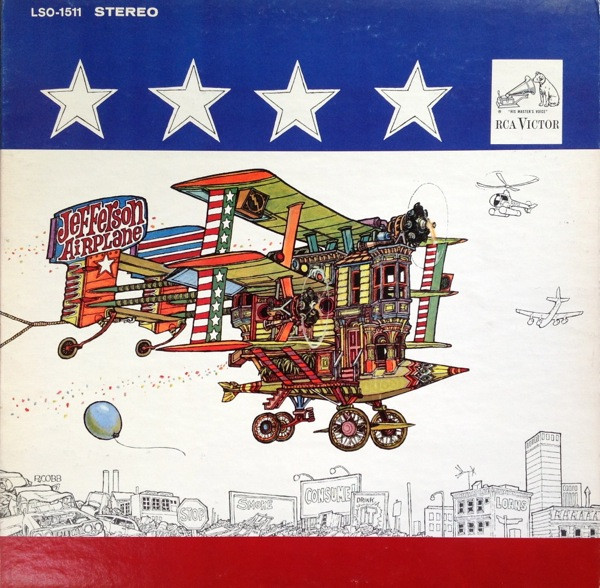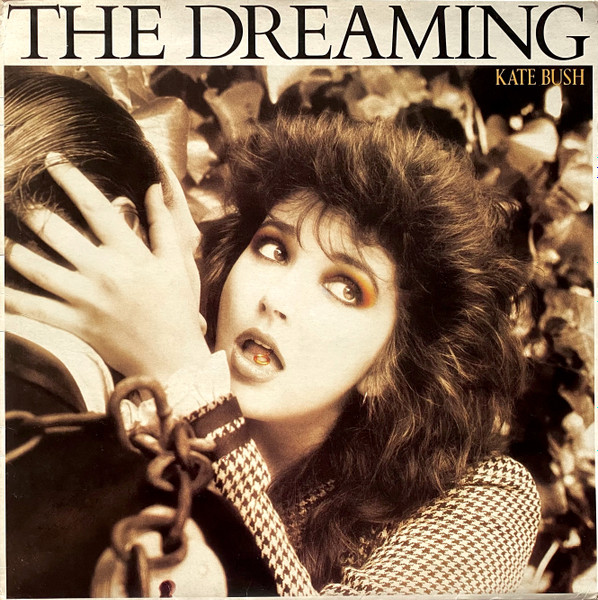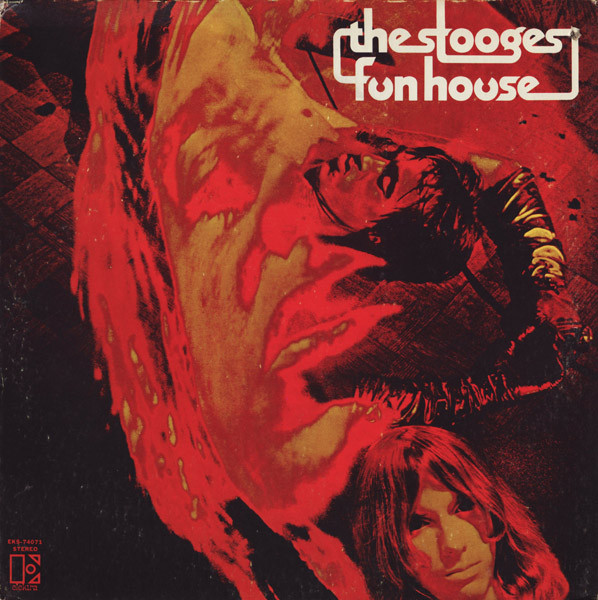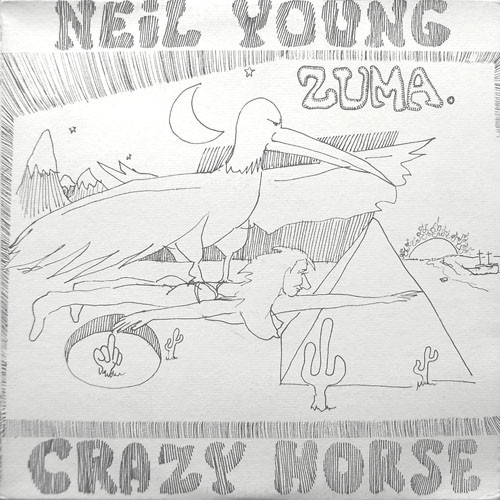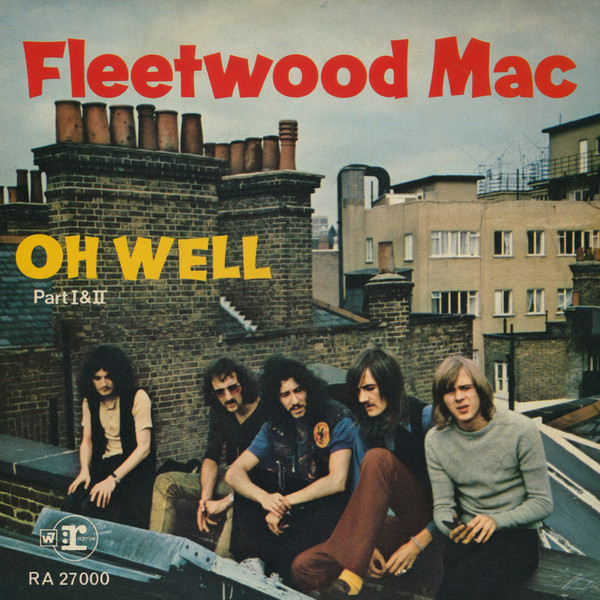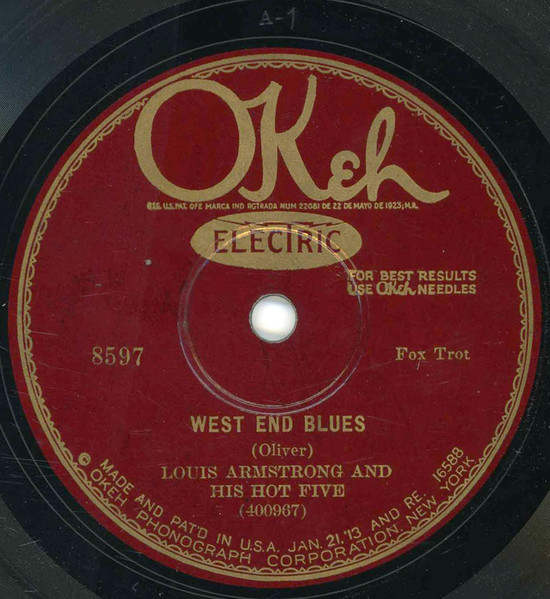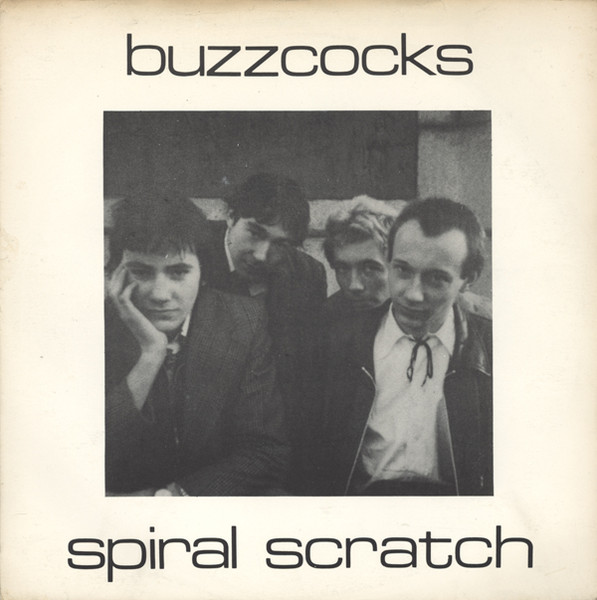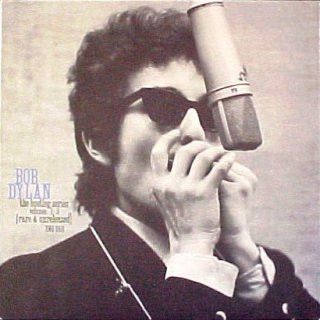Tuesday, December 24, 2024
25. Diddie Wa Diddie
Blind Blake (Paramount 12888, 1929 – b/w “Police Dog Blues”);
composed by Gary D. Davis
Credited to Rev. Gary Davis, this is the first relatively famous version of this song – or “meme,” insofar as there are numerous different songs with the same or similar title, Bo Diddley’s being the most familiar today. And while there are a lot of great Blind Blake records, I am particularly fond of this one – over his polychromic clear-as-a-bell fingerpicked guitar he expounds in his reserved and quietly amused baritone about “a great big mystery” that “sure is worrying me”: “I wish somebody would tell me what Diddie Wa Diddie means.” The great cosmic joke, of course, is that he – like everybody else who is even remotely involved – may claim not to know what Diddie Wa Diddie means, but there is not even the slightest ambiguity about what it is: it is sex, sometimes it is the parts of you that you have sex with, and sometimes it is every kind of discourse that touches on it – like, you know, good parties do. And inevitably, Blake embodies the whole package: “I went out and walked around / Somebody yelled, said ‘Look who's in town’ / Mister Diddie Wa Diddie.” There is no reason that this could not happen to you.
Note: 25 secular essays about 25 songs, each one exactly 200 words long, appearing one per day (on average) during Advent (or the moral equivalent).
Sunday, December 22, 2024
24. Living in the Heart of the Beast
Henry Cow & Slapp Happy: In Praise of Learning (Virgin, 1975);
composed by Tim Hodgkinson
As a privileged muso of the Euro-American sphere (ya heard?), I am well acquainted with a great deal of spectacular Art By Marxists, but also privy to a great slew of terrible Marxist Art - a very different thing. This fifteen-minute song is both things. Henry Cow were a bunch of Cambridge weirdos who melded fascinations with Coltrane, Bulgarian choral music, and sundry else into their own variety of orchestrated rock. Not prog rock like contemporaries who thought it a stroke to juice up Prokofiev or Brahms rather than the class-bound embarrassment it was, but electric music that sounded like what was in their capacious heads. Their heads were also trying to make political sense at the same time, so when Slapp Happy-ite Peter Blegvad’s lyrics did not fit Tim Hodgkinson’s mini-symphony, Hodgkinson wrote this godawful Maoist doggerel himself, which is intoned by the quavery Hanns Eisler specialist, Dagmar Krause. And it is gorgeous. Proletarian? Not so much. Does it kick the shit out of Tarkus? Very much so. This album got its title from Brecht whose amused concision is lacking here, but this music would not still stir in such a dark time if they had gotten that lucky.
Note: 25 secular essays about 25 songs, each one exactly 200 words long, appearing one per day (on average) during Advent (or the moral equivalent).
23. Mila’s Journey Inspired By A Dream
Eliane Radigue: Songs of Milarepa (Lovely, 1987);
composed by Éliane Radigue
This French composer is known for her electronic drone compositions in just intonation. “Drone” means only that there is no rhythmic movement, as such, and what harmonic movement there is – and there is plenty – operates on such an extruded time scale that it seems utterly alien to first-time listeners. But if Radigue’s drones do not have “plots,” they certainly have arcs – gripping ones. Her wholly-electronic Trilogie de la Mort may be the most emotionally overwhelming example of this. As a convert to Tibetan Buddhism, many of her reference points come from the liturgy. In this piece, however, it becomes lyrics, recited in Tibetan by Lama Kunga Rinpoche – whose first appearance after ten very quiet minutes is like having an ice bucket dumped on you from behind – alternating English sprechstimme by Robert Ashley. For the first half, the former brigand and now visonary Milarepa details to his followers how a dream has illuminated the group’s future devotional practice. The last half hour is all deep electronics in which so many audio figurations begin to pop out of the mix that you are certain you hear chanting or the throb of engines. When it suddenly stops, it is no longer your planet.
Note: 25 secular essays about 25 songs, each one exactly 200 words long, appearing one per day (on average) during Advent (or the moral equivalent).
22. It Ain't No Use
The Meters: Rejuvenation (Reprise, 1974); composed by Art Neville, George Porter, Jr., Joseph Modeliste, and Leo Nocentelli
The easiest quick description of the Meters is that they were to New Orleans in the ‘60s what the M.G.’s were to Memphis: the premier backing band for the star acts of their respective scenes, who also made their own records. The M.G.’s had national hits on Stax with a few of their danceable instrumentals, while the Meters had local ones on Josie, like “Cissy Strut,” but those are magical tunes – winding and snaky grooves animated by Ziggy Modeliste playing drums like each of his brain hemispheres had its own extra stick and foot pedal. When the Meters and Allen Toussaint got deals with Warner Bros. in the ‘70s, they adapted what the Meters had been doing on singles to albums and album lengths. First try on Cabbage Alley in 1972 was a mixed bag with an odd taste in covers, but second time was the charm with all original material: eight personable and often prickly tunes with Arthur’s vocals on top surrounding this twelve-minute workout that opens with a fairly standard love-gone-wrong prologue and proceeds to a long quartet interplay that unassumingly smokes along as though second line was an atom you could split and run civilization on forever.
Note: 25 secular essays about 25 songs, each one exactly 200 words long, appearing one per day (on average) during Advent (or the moral equivalent).
Saturday, December 21, 2024
21. Remember?
A Little Night Music (Columbia Masterworks, 1973);
composed by Stephen Sondheim
I have never been a musical theater guy, but I can carry a tune in an untrained way, so there were incidents in my student days. Yet we never went to bed together, even metaphorically, because notwithstanding the ubiquity of the form, I find musicals fundamentally harder to understand than opera – the discursive shift of extending or interrupting dialogue by breaking into song requires usages that simply weird me out. One of the reasons I esteem Stephen Sondheim apart from my belief in not arguing with wonders of nature is that all the difficulties and all the rewards of the form come in one full-strength package. This is my favorite of his musicals because it sounds the most distant from American vernacular without really sounding European. Set in Sweden around 1900 (and based on a Bergman period film from 1955), you think you hear bits of Grieg or Strauss, but it is a different music for a nether world in which ghosts break into song because that is the only way they can remember their lives. This is a quintet waltz in which singers recall trysts with each other that they may or may not have been physically present for.
Note: 25 secular essays about 25 songs, each one exactly 200 words long, appearing one per day (on average) during Advent (or the moral equivalent).
Friday, December 20, 2024
20. Could It Be I'm Falling In Love
Spinners (Atlantic, 1973);
composed by Melvin and Mervin Steals
Could it be my favoritest song of all time? Steady, now. I feel at a loss about this song, occasionally, because I constantly forget that Thom Bell did not write this like he wrote “Betcha By Golly, Wow” for the Stylistics, but he sure produced and arranged it, and that is the most sensuous of rubs. The rich orchestrations of Kenny Gamble and Leon Huff’s production style characterized what was labelled “Philly Soul” in the ‘70s; Thom Bell was always a seeming adjunct, but sort of the way Billy Strayhorn was to Duke Ellington. Bell had plenty of hits and each of his productions always sounded just a little beyond whatever the Gamble & Huff norm might be said to be. They were almost baroque in the way Burt Bacharach’s were – the break on this song has a harpsichord solo, interpolating the sharply articulated string and horn parts – but the words set this music, not the reverse, and the combination sets an unusually anticipatory as well as seductive mood. Since the Steals brothers’ lyrics do not poop out after the first chorus like Linda Creed’s did, you really do wonder why Bobby Smith does feel so . . . funny.
Note: 25 secular essays about 25 songs, each one exactly 200 words long, appearing one per day (on average) during Advent (or the moral equivalent).
19. Lunch
Billie Eilish: Hit Me Hard and Soft (Darkroom/Interscope, 2024);
composed by Billie Eilish O'Connell and Finneas O'Connell
It was not until I heard this that I realized how fervently I had been anticipating a full on dance song and even fuller on sex song from Billie Eilish, without having the foggiest notion that I was. Not that I had any doubt she and brother Finneas had it in them, or anything else, insofar as even the relative juvenilia on Don’t Smile At Me pops almost as hard as the stuff on the debut, and without a lot of industry types getting in the way, they have not made even an ordinary record yet, let alone a bad one. “Baby I think you were made for me / Somebody write down the recipe,” she goes, and when you read it back you immediately realize that the words in your head are probably nowhere near close to the way she sings it, slipping and sliding lubriciously over what sounds like the evenest of rhythms, but is not. And while this music really is about her – Finneas’s own merely pleasant solo music barely gets out of the driveway – it is also about the way they hear each other. “She dances on my tongue,” but that is hardly all that does.
Note: 25 secular essays about 25 songs, each one exactly 200 words long, appearing one per day (on average) during Advent (or the moral equivalent).
18. Coming Together
Frederic Rzewski: Attica / Coming Together / Les Moutons De Panurge (Opus One, 1974); composed by Frederic Rzewski
Art is the accumulated body of practices by which humans combine perceivable elements in such a way that those elements store and radiate more information than they otherwise would – information of what lawyers might term an inadmissible kind. Politics is the brokering of power to withstand perceived threats. Occasionally the two overlap, and the only real difficulty with that is that when it even more occasionally works, it often induces some to believe that art always has a political dimension – or ought to. But like they say about correlation and causation. In September 1971, the state of New York suppressed a prison insurrection by storming the facility and summarily executing and sometimes torturing every prisoner involved as well as inadvertently killing many hostages who had been otherwise unharmed. One of the inmates involved was Sam Melville incarcerated for his involvement in Weatherman bombings. This composition combines recited text from some of his letters, fearful but ecstatic. The words repeat and repeat, and as events careen out of control, the chamber group Rzewski places beneath the words loses its brakes and just rolls. It is the sound of a loose floorboard nail telling the approaching hammer that life is worth living.
Note: 25 secular essays about 25 songs, each one exactly 200 words long, appearing one per day (on average) during Advent (or the moral equivalent).
Thursday, December 19, 2024
17. Gateway
Henry Threadgill Sextet: Just The Facts And Pass The Bucket (About Time, 1983); composed by Henry Threadgill
No one really knows what jazz is, and the tendency (cf. Wynton, Crouch, et al.) to define the genre by extruding a set of parameters with a canon in mind just makes it harder to make sense of all the inevitable stuff that never fits. As Ornette Coleman once said, “We all know that a graveyard millions of years old is the study of archeology, not city planning.” Henry Threadgill’s ensemble music after disbanding the Air trio cut every which way on these questions. Both through-composed and improvised, antique and brand new, this album was a drily humorous rumination on death as both theme and structuring mechanism. His seven-member sextet (he counted the twin drummers as one) came on like a funeral procession that would never get to any burial site before it had explored every possible alternative. Opening with a percussion solo/soli, the horns tango in by twos, undergirded by the low strings, trading a set of rising figures, until they hit the stop-time double descending triplet that hooks the tune and cues the solo sections that follow, skating over the top of what still resembles a march but careens like a runaway boulder. No better way to die.
Note: 25 secular essays about 25 songs, each one exactly 200 words long, appearing one per day (on average) during Advent (or the moral equivalent).
16. The Ballad of You & Me & Pooneil
Jefferson Airplane: After Bathing At Baxter’s (RCA Victor, 1967);
composed by Paul Kantner
LSD is an abbreviation of the original German Lysergsäure-diethylamid, an organic compound with hallucinogenic properties. This is a wonderfully silly song about IT, leading off an album with a title allusively referencing IT, following up this band‘s only top-10 singles, released just a few months before the government declared IT a verboten Schedule 1 substance. This was a single, too, notwithstanding that it had to be edited by at least two thirds from an original version containing that much more raw guitar feedback and extended bass solo. What remained was an edited blare of feedback resolving into the song’s tonic, cuing a tom-heavy four with Paul, Grace, and Marty harmonizing on quotes from A.A. Milne’s When We Were Very Young, willful shifts of meter, foreshortened bass solo, and à propos of nothing the spoken word “armadillo.“ This wholly self-indulgent album should have been a mess, and a lot of it is, but that first side comprises a suite of remarkable tunes by everyone in this band who wrote, and never quite cohered their energies so well again, and not just because that is what happens to bands with enough egos to make themselves happen the unlikely way this one did.
Note: 25 secular essays about 25 songs, each one exactly 200 words long, appearing one per day (on average) during Advent (or the moral equivalent).
Wednesday, December 18, 2024
15. Get Out Of My House
Kate Bush: The Dreaming (EMI, 1982);
composed by Catherine Bush
Sometimes I think the dumbest word in the language is “experimental,” only because it is misapplied so often – and in art, pretty much always. An experiment tests a hypothesis; genuinely experimental music tests whether the music actually exists and requires an audience to answer that. Someone as obviously gifted as Kate Bush has already answered those existential questions as well as the practical ones, and does not need you to tell her how good her work is, gratifying as that might be. The open question of how large a paying audience it has is the record company’s problem. In the case of Bush’s fourth album, EMI shrewdly viewed this as a sunk cost, because “Running Up That Hill” was made possible by music influenced by Public Image Ltd. no less than Peter Gabriel, and far superior to both. At a time when digital technology was still overwhelming the content it was being used for, Bush simply revved up the content almost beyond her own ability to embody it personally. On this closing track, she ends a relationship by using a Fairlight sampler to turn her voice into twenty braying mules going berserk. The only real question is what must exist.
Note: 25 secular essays about 25 songs, each one exactly 200 words long, appearing one per day (on average) during Advent (or the moral equivalent).
Tuesday, December 17, 2024
14. Sadness
Ornette Coleman: Town Hall, 1962 (ESP-Disk’, 1962);
composed by Ornette Coleman
More than half of my college thesis was about Ornette, notwithstanding that my major was literature, not music. So I can offer no technical analysis of how his Harmolodic system worked, and you might also get a perplexed look if you asked any of his musicians about it. The closest we get is “harmony, melody, speed, rhythm, time and phrases all have equal position in the results that come from the placing and spacing of ideas.” What has been endlessly useful to me is how far Harmolodics took Buckminster Fuller’s maxim that space has no up or down. Ornette effectively codified this principle – it is where he lived, anyway - and the proof is in the listening. Free jazz is not necessarily free improvisation; Ornette could do that, but even Free Jazz had a tune, and Ornette wrote tunes most of the time. “Sadness” is entirely as advertised: a weightless four-minute dirge on alto sax accompanied by David Izenzohn’s bowed bass and Charles Moffett’s brushes. The mournful theme rises, circles back, seemingly comes to term with itself as if it had resolved something only to then raise the whole argument on a different scale. Inconsolable - both thematically and structurally.
Note: 25 secular essays about 25 songs, each one exactly 200 words long, appearing one per day (on average) during Advent (or the moral equivalent).
13. Super Falling Star
Stereolab: Peng! (Too Pure, 1992);
composed by Laetitia Sadier and Timothy John Gane
One of the most entertaining aspects of pop music is how it rejects certain definitional threats while incorporating often far more disruptive ones. And the question is always: disrupting what? People like the music they like and their relative willingness to acquire it is what “popular” means. “Pop” is something else – a specific variety of seduction shared by musics that often neither sound very much alike nor necessarily make any money. Stereolab embodied both the songwriting and romantic partnership of its two principals, who coped with the strain by stringing a lot of ostensibly seductive elements into molecules your bloodstream could not readily absorb without side effects. Some songs had Ye-Ye bossa nova beats with doctrinaire Marxist lyrics sung against – or hidden under – the beat by Laetitia Sadier who pretended not to know what she was doing, whether she was singing in English or French. This first track on their first album epitomizes their other kind of dark matter: a drumless overdubbed guitar track run in reverse, setting what sounds like excerpts from a sung chant about . . . epistemology: “Re-presented: nothing but a super falling star.” And: “Seen and I've heard it (the creation).” You have been warned.
Note: 25 secular essays about 25 songs, each one exactly 200 words long, appearing one per day (on average) during Advent (or the moral equivalent).
Monday, December 16, 2024
12. Down On The Street
Stooges: Fun House (Elektra, 1970); composed by Dave Alexander, Ron Asheton, Scott Asheton, and James Osterberg
The weirdest thing about the Stooges, even more than Iggy Pop’s atavistic stage routine and the primitivist guitar noise, was how much of an inspiration James Brown’s “Funky Drummer” was. That is not speculation – Iggy has said as much in print, but no one asks him about it much, because so many think they know what “punk” is when they hear it, but that is where you start with this music, not where you end up, necessarily. MC5 were neighbors, but so were Funkadelic when George Clinton was still mixing their albums on Yellow Sunshine. Another oddity is that Scott Asheton could not play the way they wanted him to unless Iggy was literally dancing in the studio and cuing him visually, the way Mick Jagger cued Charlie Watts. This track opens an utterly visionary album with an ignition of low register guitar noise and Iggy’s animal screeches over a straight four. One chord throughout almost the entire track, choked rhythm under Iggy’s spacy ruminations, until the refrains add one more chord, up a major fourth, and just explode. Then they unexplode for another verse until they explode again. What are the verses about? Walking around and looking. And exploding.
Note: 25 secular essays about 25 songs, each one exactly 200 words long, appearing one per day (on average) during Advent (or the moral equivalent).
Wednesday, December 11, 2024
11. Danger Bird
Neil Young & Crazy Horse: Zuma (Reprise, 1975);
composed by Neil Young
According to biographer Jimmy McCullough, Neil Young’s principal guitar is a 1953 Les Paul Goldtop, crudely painted black by a previous owner, with a pickup you can talk through, and a knob that controls the volume not just of the guitar but the output from the amps. The sound it makes is a package: a roar from a flock of flying Maseratis. Crazy Horse’s rudimentary backup is the only way that this reification of raw electricity sounds entirely like itself, full-bodied but mournful – almost folky in its sonorities. This track from the first album they did with Frank Sampedro replacing Danny Whitten sounds like an experiment Neil was never able to entirely reproduce, if the sole official live version is any indication. Incredibly slow, just a pair of three-chord progressions – upward on the verses, downward on the choruses – over which Neil shouts on key about the breakdown of his relationship with Carrie Snodgress and some extended metaphor about a flying bird. In and around this unreliable narrative, an elaborate theme and variations is expounded upon the above-referenced guitar, from wobbly choked harmonics in the first few seconds before the band enters to a supernova dropping over the horizon at the fade.
Note: 25 secular essays about 25 songs, each one exactly 200 words long, appearing one per day (on average) during Advent (or the moral equivalent).
Tuesday, December 10, 2024
10. Alfie
Dionne Warwick (Scepter single, 1966 b/w “The Beginning of Loneliness”); composed by Burt Bacharach and Hal David
It almost figures that the definitive version of this song was the B-side of a single no one remembers. Apart from Sonny Rollins’ great instrumental score, the woeful version included in the film's actual soundtrack was sung by Cher, produced by Sonny (Bono), and sounded it. Cilla Black had a hit in the UK with the same arrangement that Bacharach did for Dionne, but Dionne’s is the version that actually sounds like its own movie – possibly one quite different from the one it was written for. The philosophical commonplaces in Hal David’s lyrics fit the story well enough, but Burt Bacharach’s weirdly obsessive way of setting those words, adding extra beats and fractions of measures in different successive time signatures, to custom fit melodies to the phrases as written rather than suspending the words from a supple but set meter, makes the song’s truisms about the importance of love and just being nice to people sound like metaphysical propositions just because they are set to melodic lines that curl like Art Nouveau ironwork – lighter than air except that they weigh a ton. Both Ned Rorem and Miles Davis thought so. And only Dionne Warwick could sing those words that way.
Note: 25 secular essays about 25 songs, each one exactly 200 words long, appearing one per day (on average) during Advent (or the moral equivalent).
Monday, December 9, 2024
9. Oh Well (Parts 1 & 2)
Fleetwood Mac (Reprise single, 1969; released in the U.S. on Then Play On); composed by Peter Green
I do not subscribe to the theory that Fleetwood Mac was a great lost British blues band who lost its true believers Peter Green and Jeremy Spencer to bad acid and Jesus cults before Buckingham-Nicks finished crashing the blimp in 1975. It really is all the same band from beginning to end, and this oddball single bears that out. Part 1 rocks out and part 2 spaces out. Covers of this song by others usually ignore part 2 altogether, but Green apparently wanted the slow spacy part to lead off. Similarly mysterious is much of the music on the contemporaneous LP, Then Play On, on which the blues usages are ubiquitous, but undergird a sound world more than a rock record, as such. A lot of the music is quiet and deliberately unfinished, fragments of studio jams cross-fading into Green’s slide excursions and ruminations. It does not sound like anyone else, and it is to this band’s credit that they never did. When Green left, they lost his sound world as much as his playing and writing. Great as Christine McVie was at filling the songwriting gap, it took Lindsey Buckingham’s record-making knack to bring that weird sound world back.
Note: 25 secular essays about 25 songs, each one exactly 200 words long, appearing one per day (on average) during Advent (or the moral equivalent).
Sunday, December 8, 2024
8. Lady Marmalade
LaBelle: Nightbirds (Epic, 1974);
composed by Bob Crewe and Kenny Nolan
Bob Crewe and Kenny Nolan were a couple of hacks who wrote two number 1 hits in 1974: a drecky one for Frankie Valli, mercifully supplanted on the charts by this. Not that it was all that much better a song, really. But 1974 was make or break for LaBelle – fronted by Patti LaBelle who never quite broke in the ‘60s and in-house songwriter Nona Hendryx who never wrote a hit – who had three dud albums for other labels to their credit by this time. So Epic hooked them up with Allen Toussaint, who for all intents and purposes gave this tune to New Orleans session drummer, Herman Roscoe Ernest III. This is funk played as an almost entirely straight four, like a march, mostly on the snare, except that Roscoe lays behind the beat, building up so much tension in each verse that when he hits the downbeat at the top of the next one, it swells and crests like an orgasm. And then he keeps putting it where it feels good again and again. Us kids used to hoot about what “Voulez-vous coucher avec moi?” meant, but really, the sex described in the lyrics is pretty much redundant.
Note: 25 secular essays about 25 songs, each one exactly 200 words long, appearing one per day (on average) during Advent (or the moral equivalent).
Saturday, December 7, 2024
7. Glass Enclosure
Bud Powell: The Amazing Bud Powell, Vol. 2 (Blue Note, 1954);
composed by Earl Rudolph Powell
This is a through-composed miniature suite that Powell wrote, reportedly, while semi-imprisoned by the owner of Birdland who wanted to ensure Powell would be in shape to play a scheduled date. But even though the “enclosure” was probably that apartment rather than Bellevue, where Powell had been committed more than once by then, it does not matter all that much to the nightmare the music immediately brings to mind. Bud Powell’s brilliance is something we know primarily by implication. Not that he left no artifacts; he made some astounding recordings that only began to bland out after the mid-‘50s when the schizophrenia got too much for his playing to fend off. But that he was fully a peer of Parker and Monk is something we have to deduce from clues like this recording, which is unlike anything else Powell did and unlike anything any of his peers put on record, but still emblematic of what Mingus once said about the bebop theoreticians: that they should go down as composers above all else. Their improvisational calculus was as much about opening up unkown galaxies of musical material as to constitute some sentimental ideal of free expression, which is a sunk cost.
Note: 25 secular essays about 25 songs, each one exactly 200 words long, appearing one per day (on average) during Advent (or the moral equivalent).
Friday, December 6, 2024
6. T.B. Sheets
Van Morrison: Blowin’ Your Mind! (Bang, 1967);
composed by Van Morrison
After THEM never quite broke, Van Morrison got a solo deal with the mobbed-out Bert Berns, as did Neil Diamond. Both signees had AM radio hits right out of the box. The catch was that Van also wanted his debut album to have its own “Desolation Row” or “Sad Eyed Lady of the Lowlands.” Except that Van’s take on such quasi-mystical sexual obsession was a ten-minute epic about a real-life girlfriend dying of tuberculosis. Preceding it on the original LP side was the up-and-over “Brown Eyed Girl,” followed by a bitter cuckold’s rumination called “He Ain’t Give You None.” After which a group of studio musicians - probably wondering what the hell this Belfast maniac could possibly be going for – hit on a weird midtempo shuffle with Eric Gale’s tremeloed guitar figure continually bumping against blasts from Van’s harmonica that are the song’s hook. Every so often Van rattles off verses that sound like a verbatim transcript of what he might have said to his lover not long before she died in a bedsit with the windows open, fetching water and wine and trying to get away before the smell of death knocked him flat. He did not make it.
Note: 25 secular essays about 25 songs, each one exactly 200 words long, appearing one per day (on average) during Advent (or the moral equivalent).
Thursday, December 5, 2024
5. Entertain
Sleater-Kinney: The Woods (Sub Pop, 2005);
composed by Carrie Brownstein, Corin Tucker, and Janet Weiss
By the time I caught them live, I already liked them, but it had not been any kind of overnight conversion. The aspects that some (men mostly, damn it) find off-putting about them – Corin Tucker’s piercing warble and the absence of bass – are not just things to get used to. Either you fall in love with those things outright or the intensity of this music will be unreadable to you. You have to come to them. Since I am greedy and not having access to a catalogue of great music like theirs is intolerable to me, I buckled down. And when I saw them, I understood their two-guitar system, too. The trick is that Corin Tucker plays bass lines, but on a regular guitar. Accordingly, the entirety of their music happens in the same trebly register, requiring a more precisely-tuned wiring to accommodate the information surge. This particular tune knocked me out both on record and live. The verse is Carrie Brownstein laying out their ambivalent cultural theory: “We're not here cause we want to entertain / You can go away, don't go away.” And the monster hook is the chorus consisting only Corin Tucker going “OH – OH – OH!!!!”
Note: 25 secular essays about 25 songs, each one exactly 200 words long, appearing one per day (on average) during Advent (or the moral equivalent).
Wednesday, December 4, 2024
4. West End Blues
Louis Armstrong & His Hot Five (OKeh 8597, 1928 – b/w “Fireworks”);
composed by Joseph Nathan “King” Oliver
In the context of jazz history – only a decade old (on shellac anyway) when this record came out – liking this can be a little like saying your favorite painter is Rembrandt when you have no idea of how large The Night Watch is. That is only to say you could not possibly be wrong, but you will always have miles to go. Coming to it cold today, without context, you admire Armstrong’s jaunty solo trumpet introduction, setting up the entrance of his sidemen playing in a stately march rhythm, followed by Earl Hines’ languorous piano solo, Armstrong’s wordless vocalese against Johnny Dodds’s clarinet solo, and one more solo by Armstrong against the bias (in the couture sense of the word). Nothing is missing, except that in 1928, this record was a ferocious lightning bolt and about as avant-garde as something so popular ever is. It has several different tempos simultaneously. It has several different musical styles simultaneously. The opening solo – which was reportedly based on figures from a trumpet exercise book – took what had heretofore been a military band instrument, bent time and space with it, and squared the circle with the closing fusillade. This was impossible. It still is.
Note: 25 secular essays about 25 songs, each one exactly 200 words long, appearing one per day (on average) during Advent (or the moral equivalent).
Tuesday, December 3, 2024
3. Boredom
Buzzcocks: Spiral Scratch (New Hormones, 1977);
composed by Peter McNeish and Howard Trafford
From the first nearly homemade record of its primitivist era to move real units with no serious biz money behind it (Pistols and Clash only recorded for major labels) by a great band that would within a few months share a (major) label and producer with the Stranglers. Buzzcocks stayed great, and arguably better in some ways than this bilious version which only very briefly contained the sensibilities of both Howard Devoto – who took his mewling pinhead routine in a more exploitable direction with his own group Magazine – and Pete Shelley who transmuted his own hyper-sexual rage into a tortuous and temporally indecipherable roar of guitars over drums that sounded like a capsized lawnmower left running. Even cheerful, the Buzzcocks sounded like you might lose a finger if you leaned in too close to the machinery. On this track, the band’s disorienting blur broken up by sudden halts and jokey vocal interjections, perfectly contextualizes Devoto’s non-ethos: “You know me, I'm acting dumb / You know the scene, very humdrum / Boredom, boredom, boredom-om-mmm! (Ba-dum, ba-dum!)” It sounds remorselessly fast and dreadfully slow at the same time. It simultaneously encapsulates its subject and turns it all the way around. Punk rock.
Note: 25 secular essays about 25 songs, each one exactly 200 words long, appearing one per day (on average) during Advent (or the moral equivalent).
2. (Talk To Me Of) Mendocino
Kate & Anna McGarrigle (Warner Bros., 1975);
composed by Kate McGarrigle
Closing the first side of this great, simultaneously gemütlich and itchily disturbing debut album is the usually droll Kate’s solemn elegy to a personal geography that seems so random – New York State? Indiana? – that one has to assume it’s all really about the kind of observer she was becoming in each place, at each time, and in each verse as you hear it. A likely counterpart to its strangely prim opening “farewell to the state of old New York” is “Saratoga Summer Song,” only recorded as a demo around the same time. In that song, Kate describes a group of other “nice young adults” communing near Saratoga one summer in the early ‘70s - getting high, skinny dipping, never sleeping alone, who “weren't too smart and we had a bust,” but so what – “[W]e who are free / Swing like the rope from that tree.” “Saratoga” is a great one, but “Mendocino” was always the keeper, not just because it’s a gorgeous hymnlike non-hymn, but because it’s just as specific as “Saratoga” except instead of “dope and lust,” there is only the sunrise over the redwoods. “I'll rise with it till I rise no more.” Could you say as much?
Note: 25 secular essays about 25 songs, each one exactly 200 words long, appearing one per day (on average) during Advent (or the moral equivalent).
Sunday, December 1, 2024
1. Talking Bear Mountain Picnic Massacre Blues
Bob Dylan: The Bootleg Series, Vol 1-3: Rare & Unreleased 1961-1991 (Columbia, 1991; recorded 1962);
composed by Bob Dylan
In the hallowed folk tradition, Robert Zimmerman’s oeuvre has more than its share of other people’s tunes, one being this direct lift from Woody Guthrie’s “Talking Sailor.” Not to say that it was Woody’s tune, as that was just some jaunty strumming underlying the iambic deadpan. But Woody’s not-so-reverent apprentice turned his 1944 narrative of a unionized merchant marine trucking fascist-killing ordnance over the Pacific into a post-Eisenhower parody in which an utterly oblivious picnicking enthusiast takes his wife and their “whole kids . . . yippee . . . ” on a ferry that sinks, leaving him scrambling from the Hudson an apparently shattered basket case, but ever so cheerfully “lucky to be ALIVE, though!” For a supposedly great versifier it may seem unfair to lionize Dylan for his jokes, except that – from the parking meter turned cigarette lighter to the other man’s pillbox hat fetish to “you just sit around and ask for ashtrays – can’t you reach?!?” - his jokes are even more for the ages than anything else he sent barreling down the chute. And there is no more inexhaustible comedy record by anyone than this – unless you count “Clothes Line Saga” which deftly inserted Hubert Humphrey into “Ode To Billy Joe,” where he belonged.
Note: 25 secular essays about 25 songs, each one exactly 200 words long, appearing one per day (on average) during Advent (or the moral equivalent).
Subscribe to:
Comments (Atom)

